Students’ interactions with their peers are important not only in their development of positive relationships, but also in their emerging attitudes toward school. A student who frequently gets in arguments with their classmates, for example, is less likely to look forward to going to school than a student who has mostly positive experiences with their peers. This week, we focus on the role that teachers can play in encouraging positive peer interactions by 1) supporting friendship skills, and 2) promoting problem-solving.
Supporting Friendship Skills
Children cannot develop positive peer relationships unless they have a basic understanding of the skills needed to relate to others. These include taking turns, waiting patiently, sharing, listening to others, and being flexible (among many others!).
One way to introduce and promote social skill development is through the  use of the “Super Friend” visual cue. Using the concept and story of a superhero, students are taught the characteristics (i.e., social skills) of what it means to be a “Super Friend.” This strategy not only provides a fun and concrete introduction to friendship skills, but also serves as a quick and easy way to cue students of these behaviors when they need a reminder throughout the day. For ideas on how to integrate “Super Friend” throughout your classroom, see the Introduction to Super Friend Activity Guide.
use of the “Super Friend” visual cue. Using the concept and story of a superhero, students are taught the characteristics (i.e., social skills) of what it means to be a “Super Friend.” This strategy not only provides a fun and concrete introduction to friendship skills, but also serves as a quick and easy way to cue students of these behaviors when they need a reminder throughout the day. For ideas on how to integrate “Super Friend” throughout your classroom, see the Introduction to Super Friend Activity Guide.
Promoting Problem-Solving
Kindergartners are in the early stages of developing their ability to control their emotions and behaviors. So no matter how many “Super Friends” you have in your class, there are bound be some peer challenges. In addition to supporting friendship skills, it is important to help students recognize what to do when running into problems with peers.
One way to help guide students through peer conflict is by using the “Solution Kit” – a variety of problem-solving strategies in the form of visual cues. Similar to “Super Friend,” these visuals can serve as a tangible, quick, and easy way to remind students of different strategies for solving problems in-the-moment when they need them most. For ideas on how to integrate the “Solution Kit” throughout your classroom, see the Introduction to the “Solution Kit” Activity Guide.

When it comes to preparing your students for future success, social skills are as important to focus on developing as academic skills. Cooperating with others and managing disagreements are critical skills for working in groups and maintaining safe and positive school communities, and taking the time to work on these skills with your students will provide benefits now and for years to come!
More questions? VKRP provides support via the online chat feature when you are in the system, via email vkrp@virginia.edu, and via toll free 866-301-8278 ext. 1.

